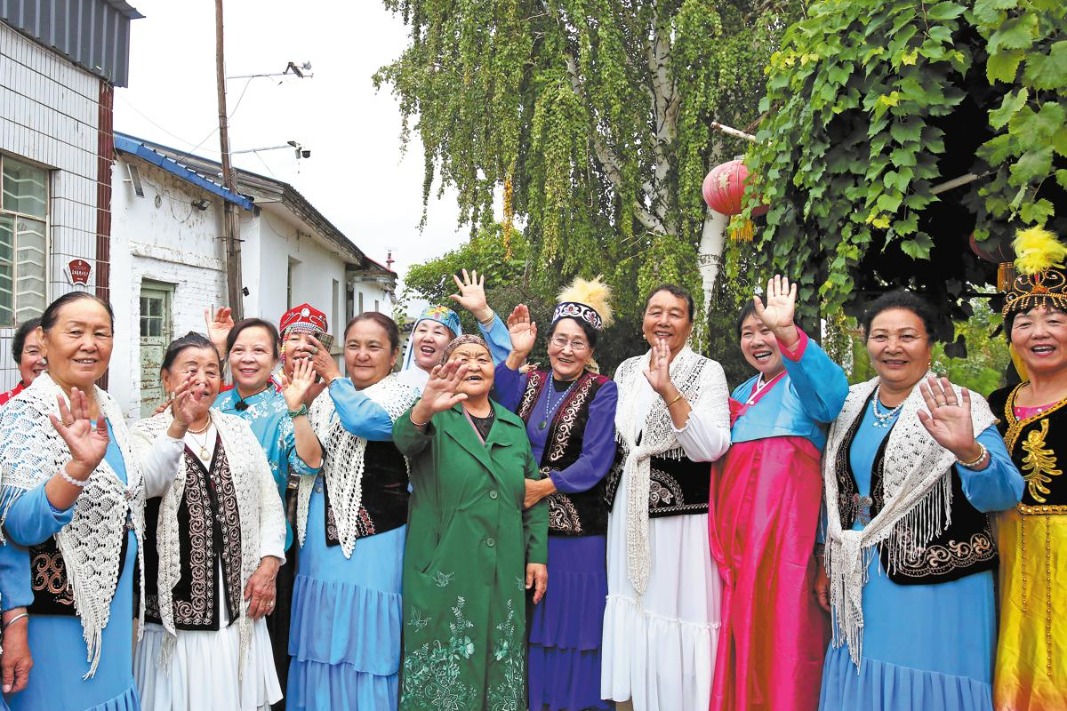Joint climate action key to hunger-free world


Climate change poses a serious threat to global food security. Rising mean temperatures and more frequent and severe extreme weather events could push hundreds of millions of additional people into hunger or leave them suffering undernutrition if the international community does not immediately implement effective corrective measures.
Future food security risks are often cited to underpin the need for taking concerted climate action. But a food security crisis is already unfolding due to rising global temperatures. Last year was the hottest year since global temperature records began; and 2024 has ++reportedly been hotter.
Heat waves, droughts, tropical cyclones, floods and landslides are just a few of the phenomena that many parts of the world are more frequently facing today. These extreme weather events claim lives, and harm human health in various ways. They also destroy critical infrastructure and human livelihoods. The impact of extreme weather events on agriculture has been especially devastating because agriculture is heavily dependent on weather conditions.
Climate change is already reducing crop yield, especially in tropical and subtropical regions, with the African continent suffering the most. Recent studies show that average crop yield in some African countries today is 40 percent lower than what it would have been without climate change. In parts of Asia and Latin America, average crop yield is 20-30 percent lower, and the situation could get worse. Productivity in the livestock and aquaculture sectors, too, has reduced.
Climate change has also made pest control increasingly difficult in the agricultural sector, as insects, viruses, fungi and other pathogens are evolving and spreading to new areas. Also, rising sea levels are contributing to increasing loss of fertile farmlands.
Agricultural production losses mean the shortage of sufficient food in some areas. Shortage leads to rising food prices, making nutritious food less affordable. And the fact that many poor people in Africa and Asia are smallholder farmers or agricultural laborers means loss of jobs and incomes due to crop failures.
Food security is not only about calories. Rising food prices and shrinking incomes prompt poor people to eat less nutritious food and shift to cheaper staples to satiate their hunger. As a result, some people may get enough calories but still suffer from deficiency of micronutrients such as vitamins and minerals. Even temporary micronutrient deficiency can have serious health consequences for the people, especially children. To make things worse, many crops contain lower levels of micronutrients due to rising global temperatures.
Since 2015, progress in the fight against hunger has been stagnating, and the number of undernourished people in Africa has increased in recent years. To prevent the food insecurity problem from worsening, actions should be taken in five areas on a priority basis.
First, the world has to take bolder climate action. Every effort to curb global warming is crucial for reducing the likelihood and frequency of catastrophic weather events. Hence, all sectors, including agriculture that contributes in no small measure to climate change, should take immediate measures to reduce their greenhouse gas emissions.
Second, food systems need to be made more climate-resilient, by further diversifying crops and cultivating hardier crops and animal breeds with the help of new genomic breeding technologies. To achieve this, advanced technologies should be made accessible to smallholder farmers in Africa, too.
Third, the functioning of food markets needs to be improved, while measures should be taken to better connect poor households to the markets. Since some regions of the world are more vulnerable to climate change, efficient international exchange is key to preventing food scarcity at the local level. And to ensure efficient international exchange, policies that impede trade need to be abandoned.
Fourth, poor people in many rural areas of Africa and Asia depend primarily on agriculture for their livelihoods. In case of crop failures, these households lose their source of income. So new channels for generating employment in non-agricultural rural sectors should be explored in order to reduce poverty and help people adapt to climate change.
And fifth, there is also a need to strengthen the social safety nets in low- and middle-income countries. Extreme weather events and related shocks are becoming more frequent, hurting poor people the most, so safety nets need to be strengthened to stabilize the dietary intakes of the most vulnerable sections of society.
In other words, more investment is needed to enable rapid action in these five areas, while low- and middle-income countries should take measures on a priority basis to make food systems more resilient. Not to mention that high-income countries are obligated to shoulder their international responsibility to help low- and middle-income countries to deal with the climate challenge.
With strong global cooperation, a world without hunger remains a realistic goal to achieve.
The author is a professor of Agricultural Economics and executive director of the Center for Development Research at the University of Bonn, Germany.
The views don't necessarily represent those of China Daily.
If you have a specific expertise, or would like to share your thought about our stories, then send us your writings at opinion@chinadaily.com.cn, and comment@chinadaily.com.cn.


































